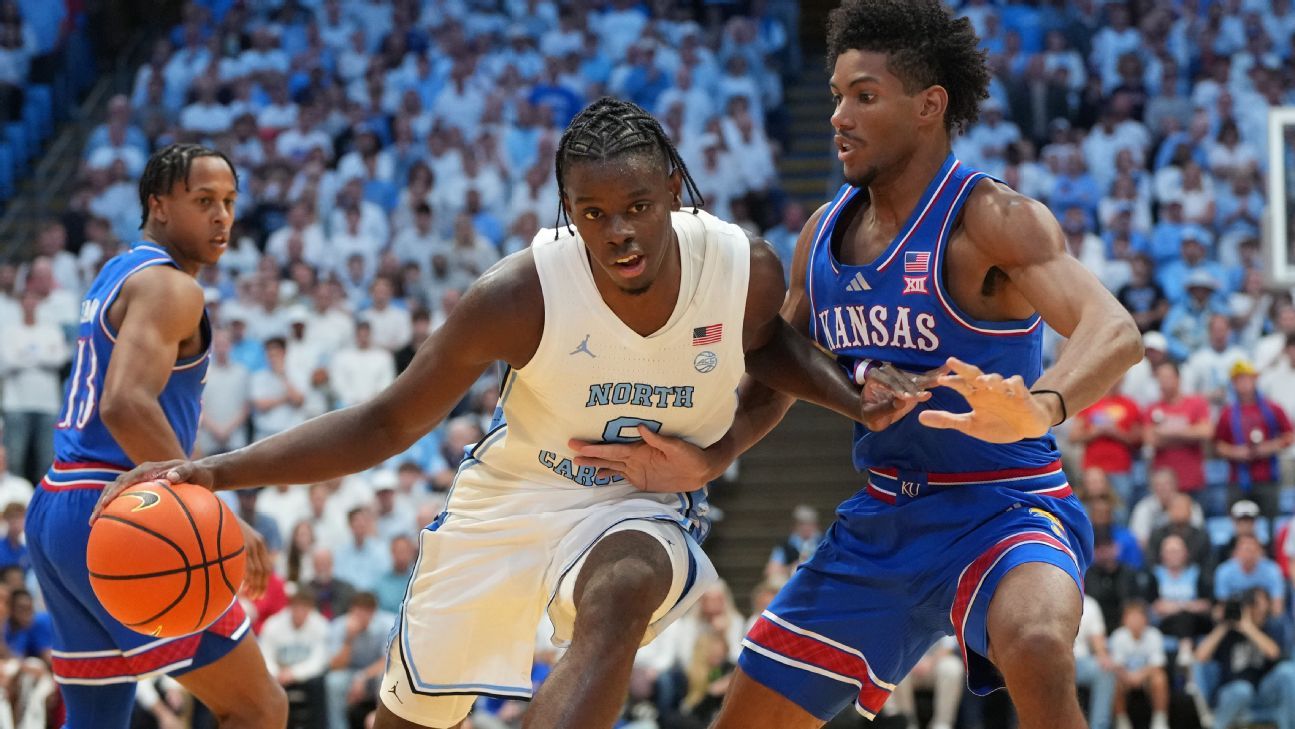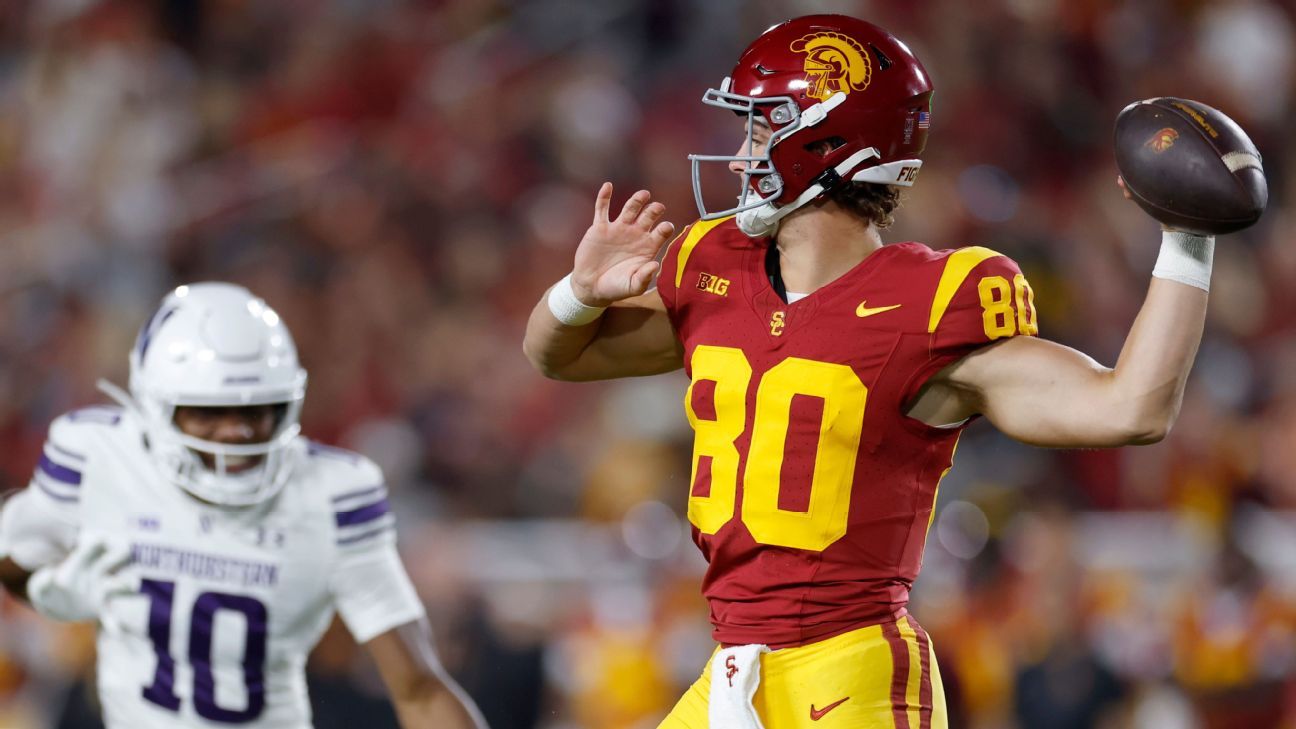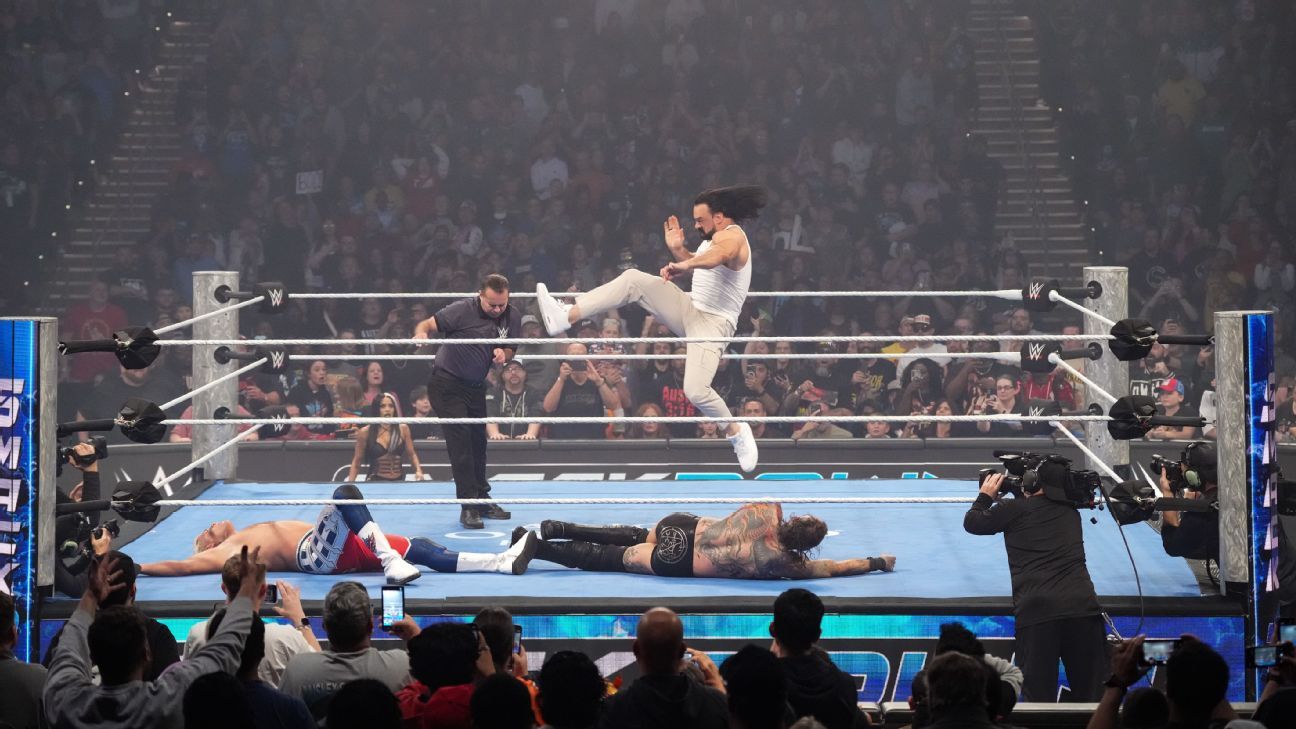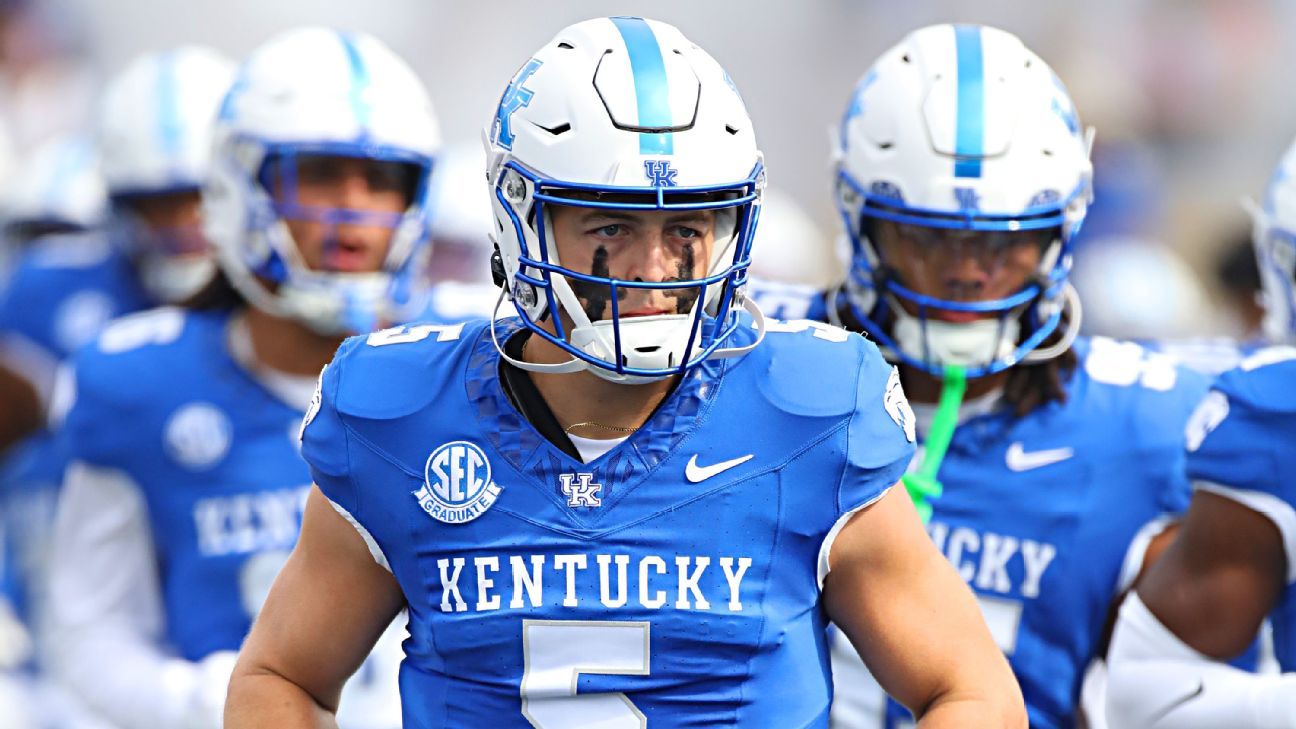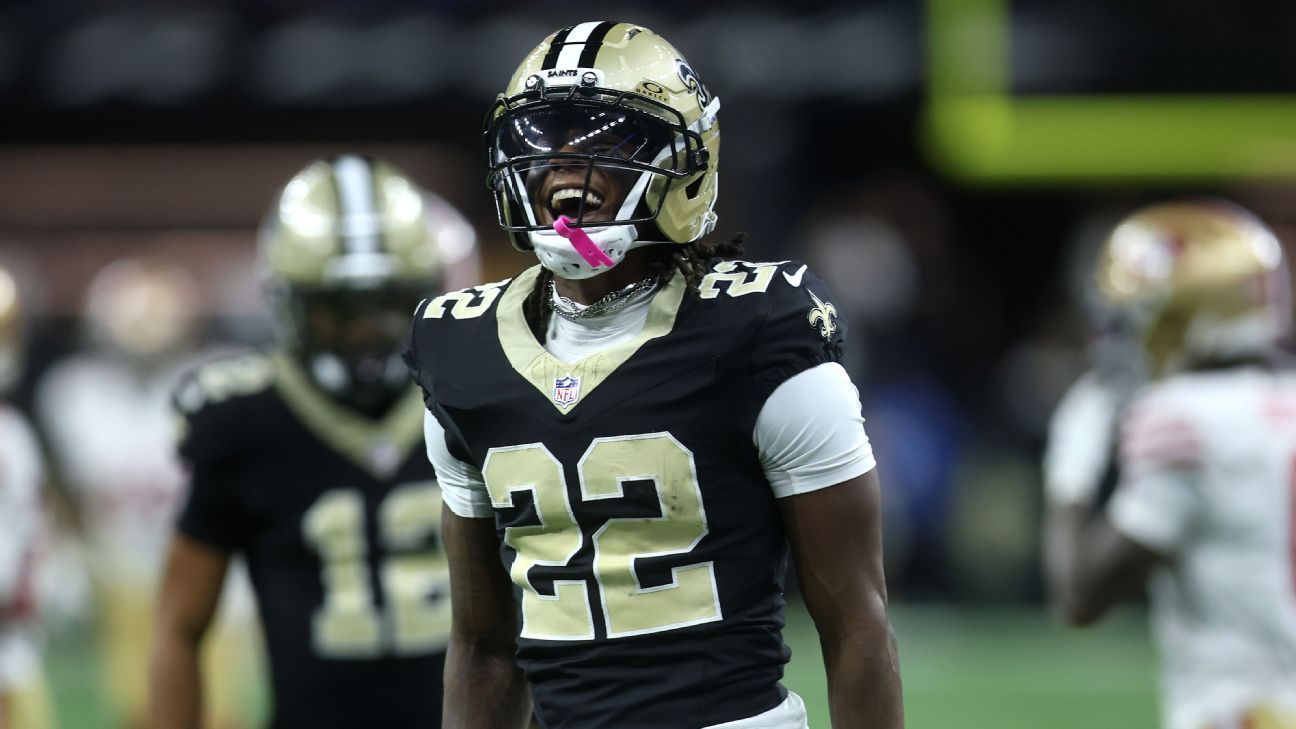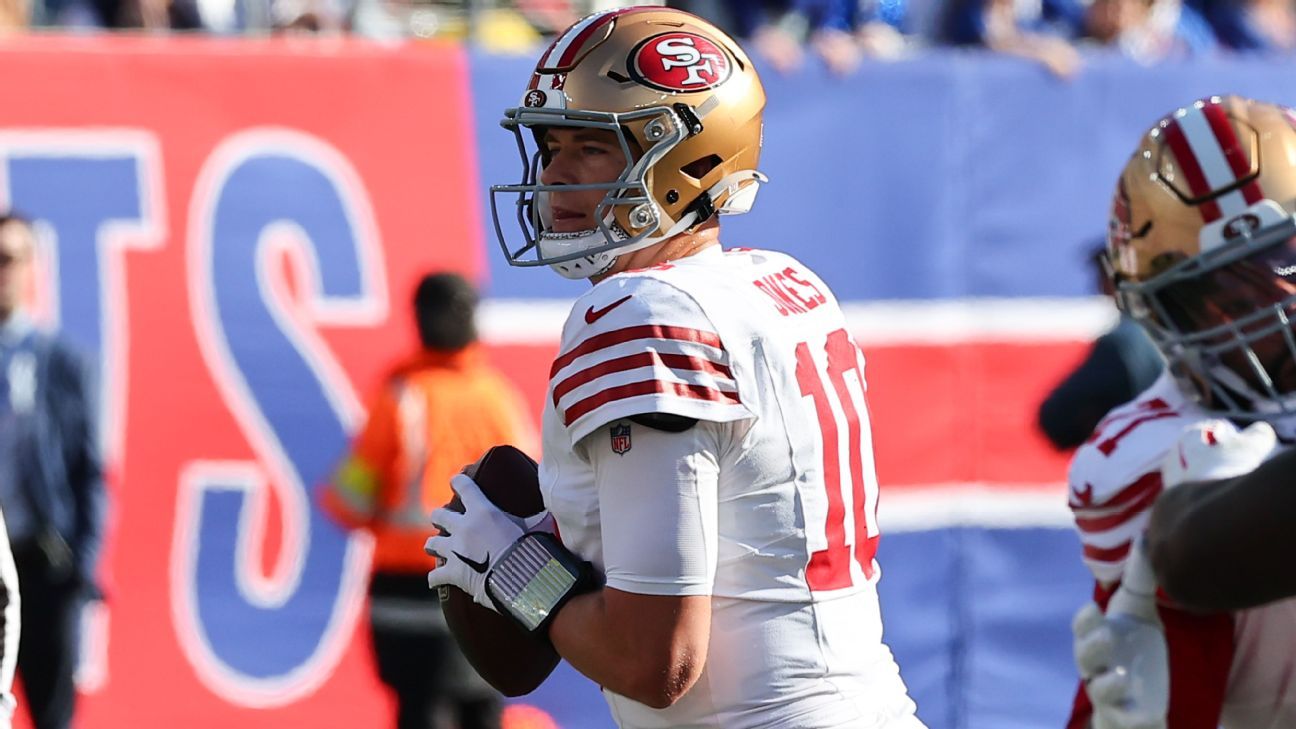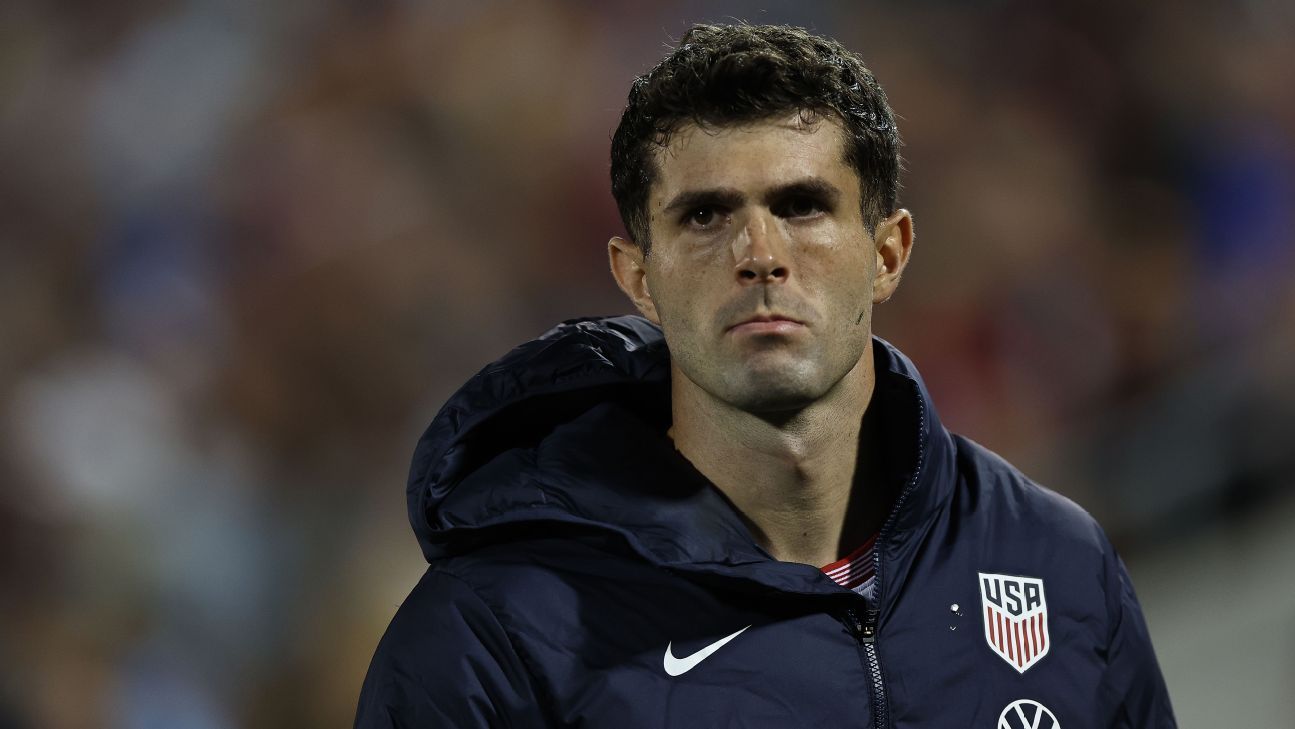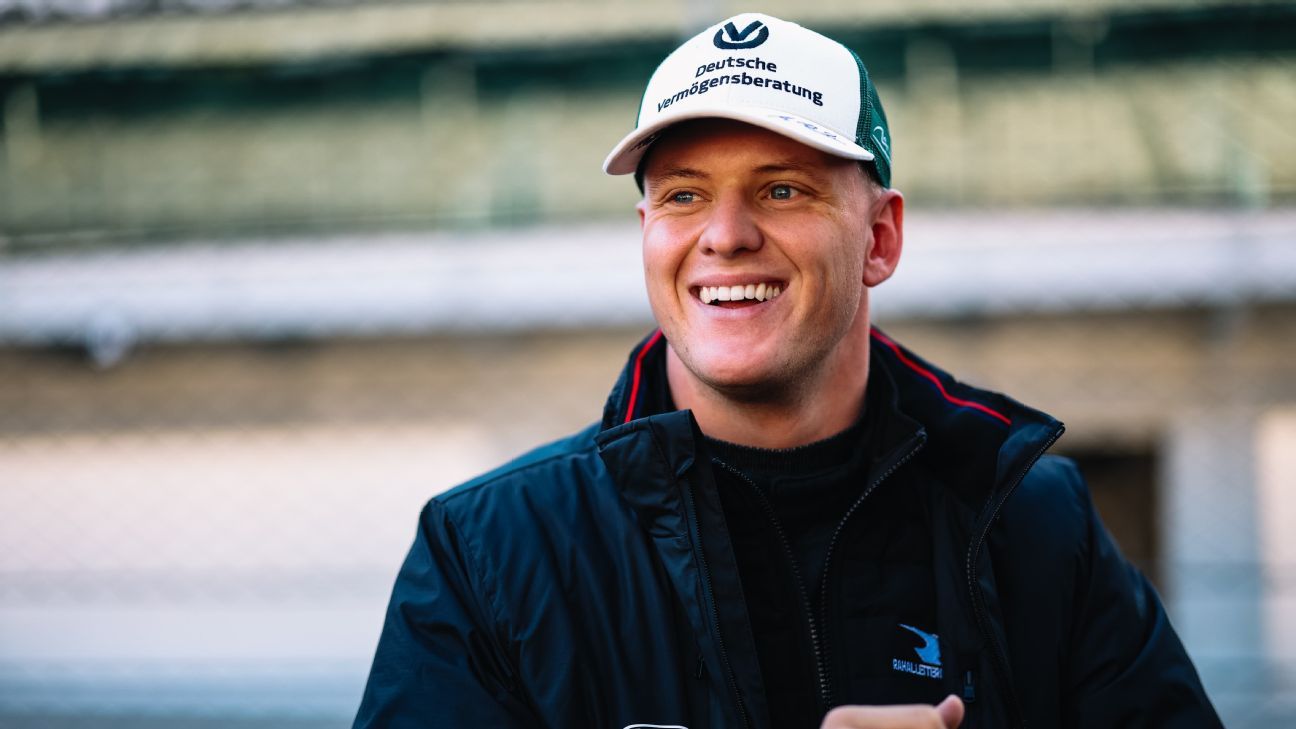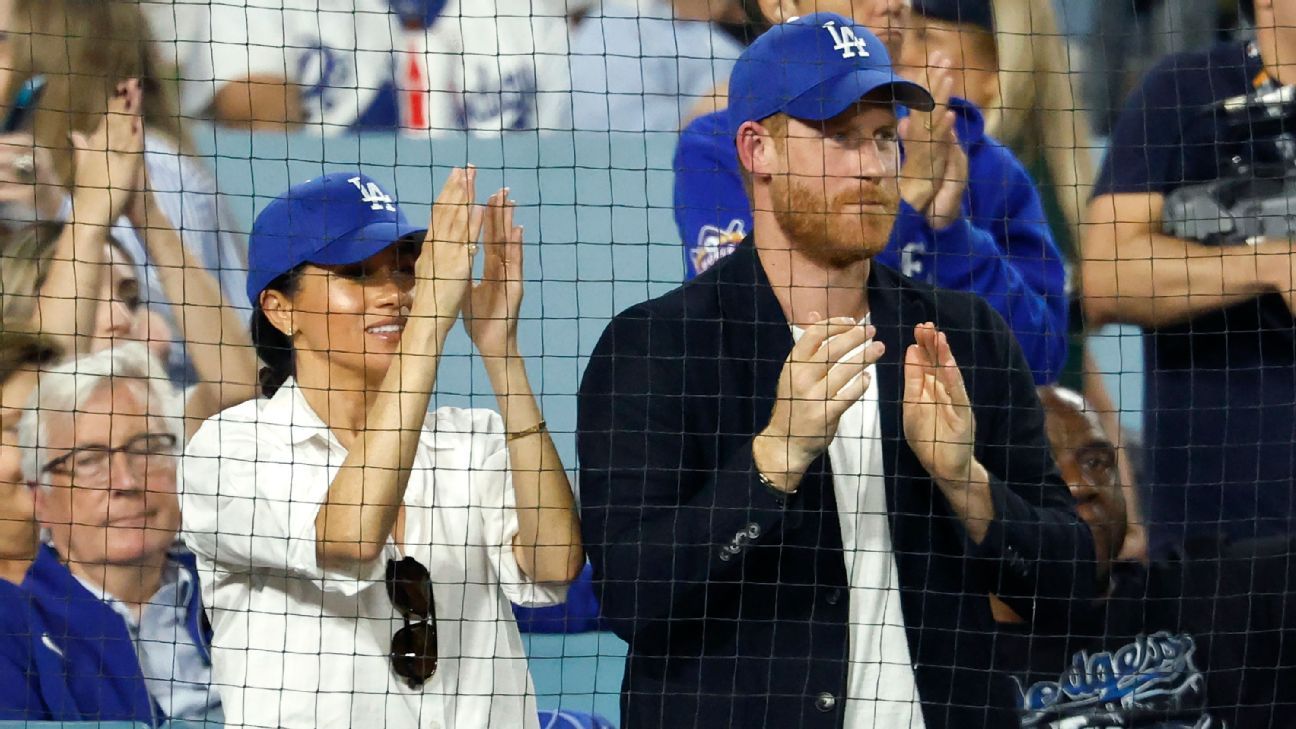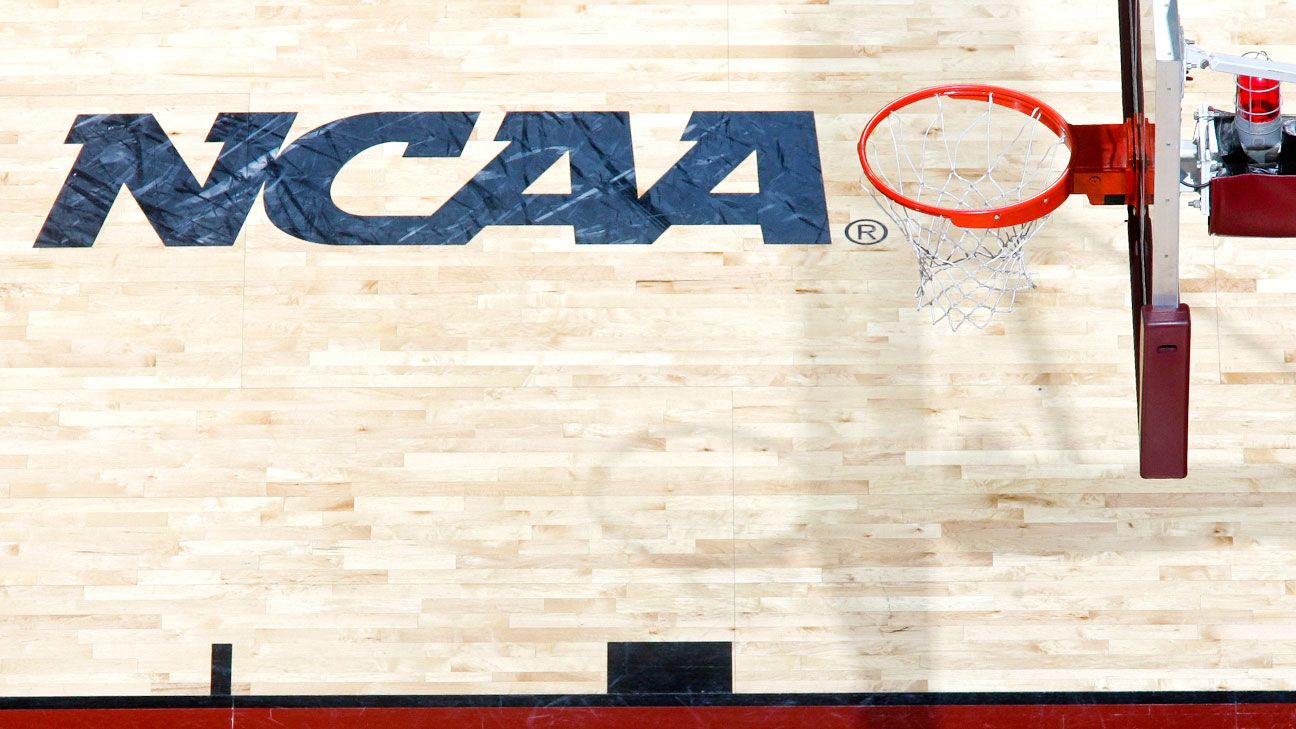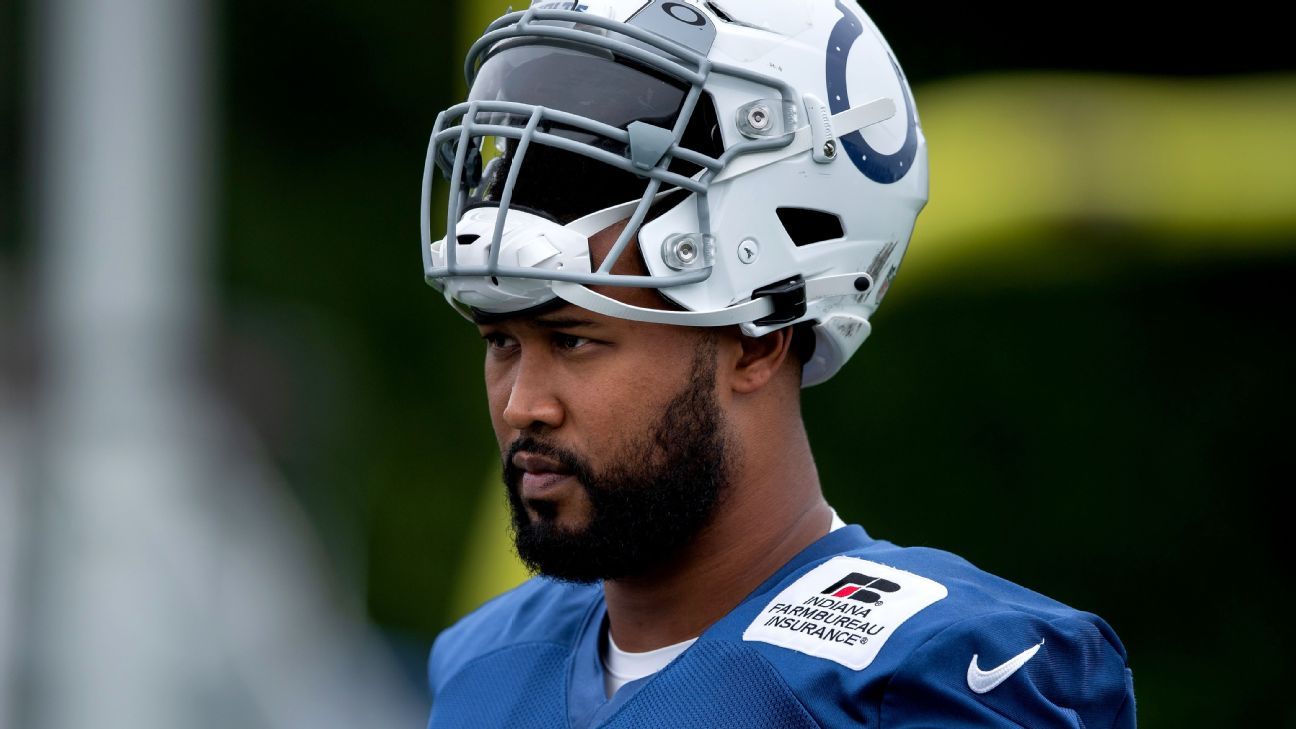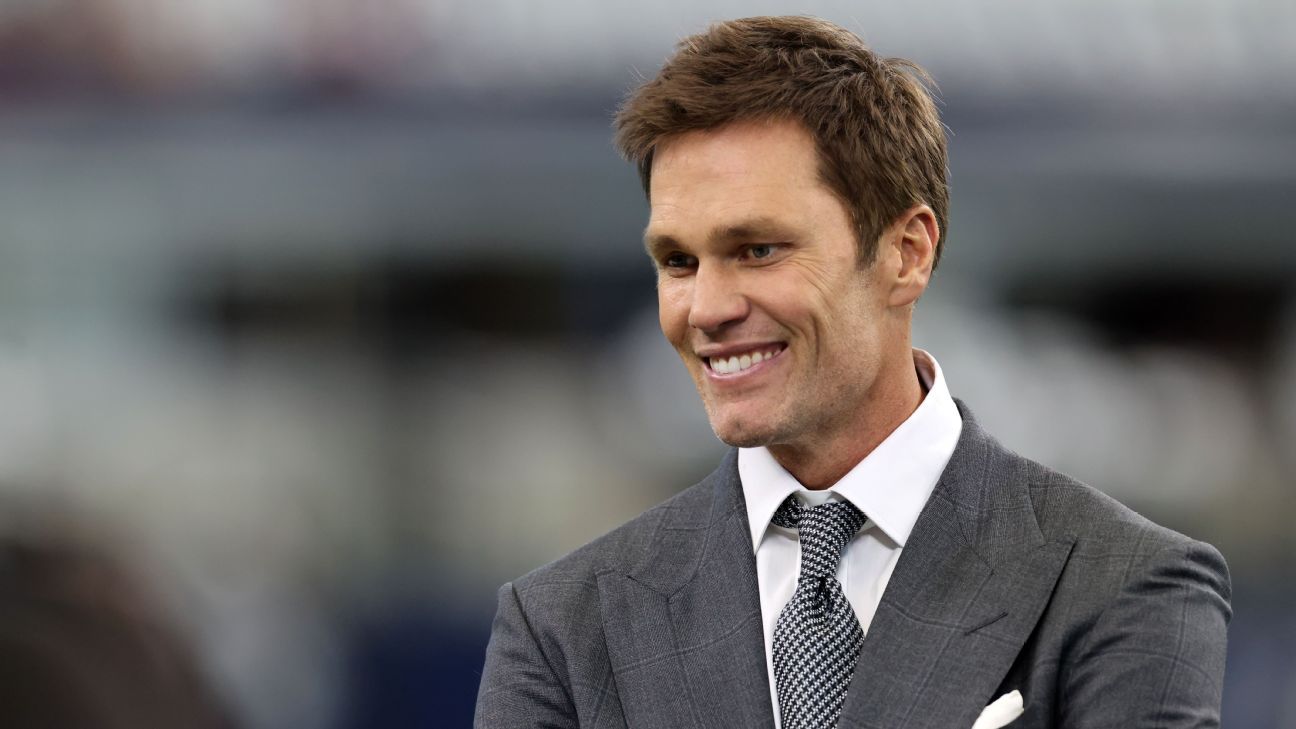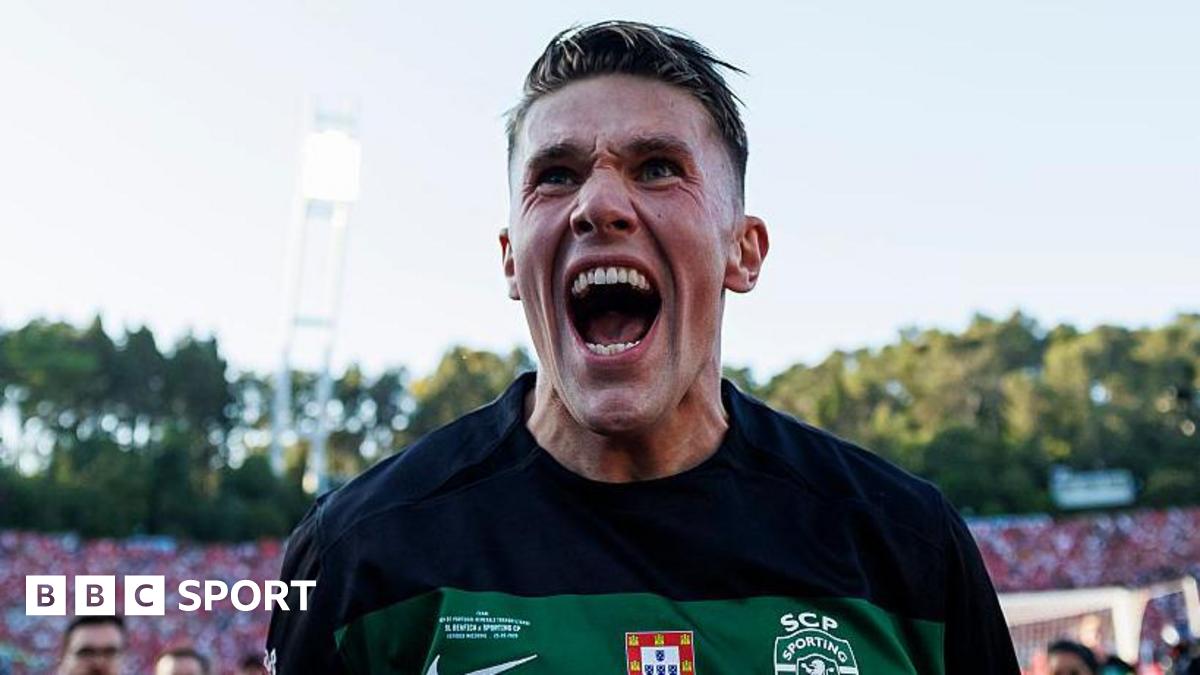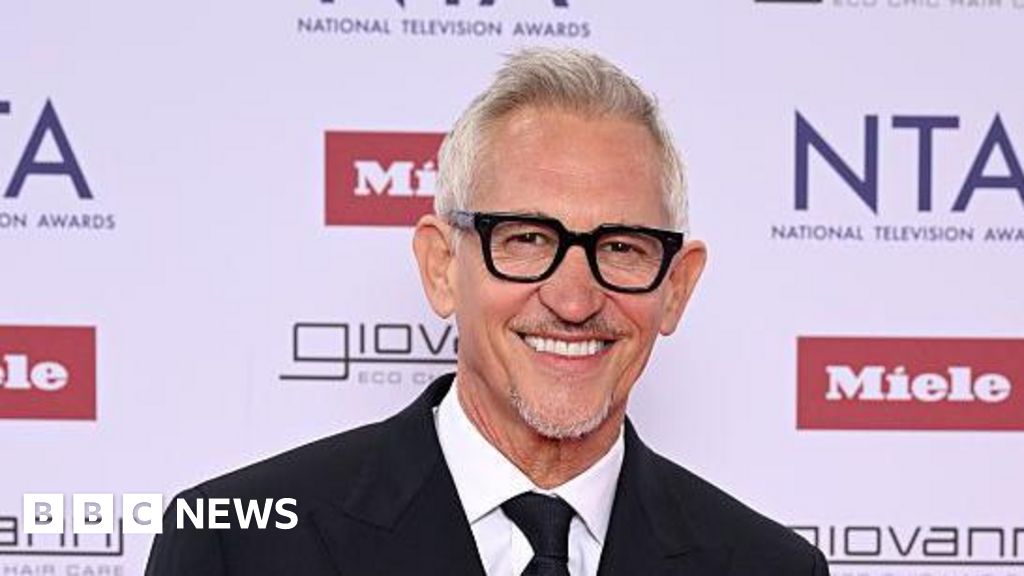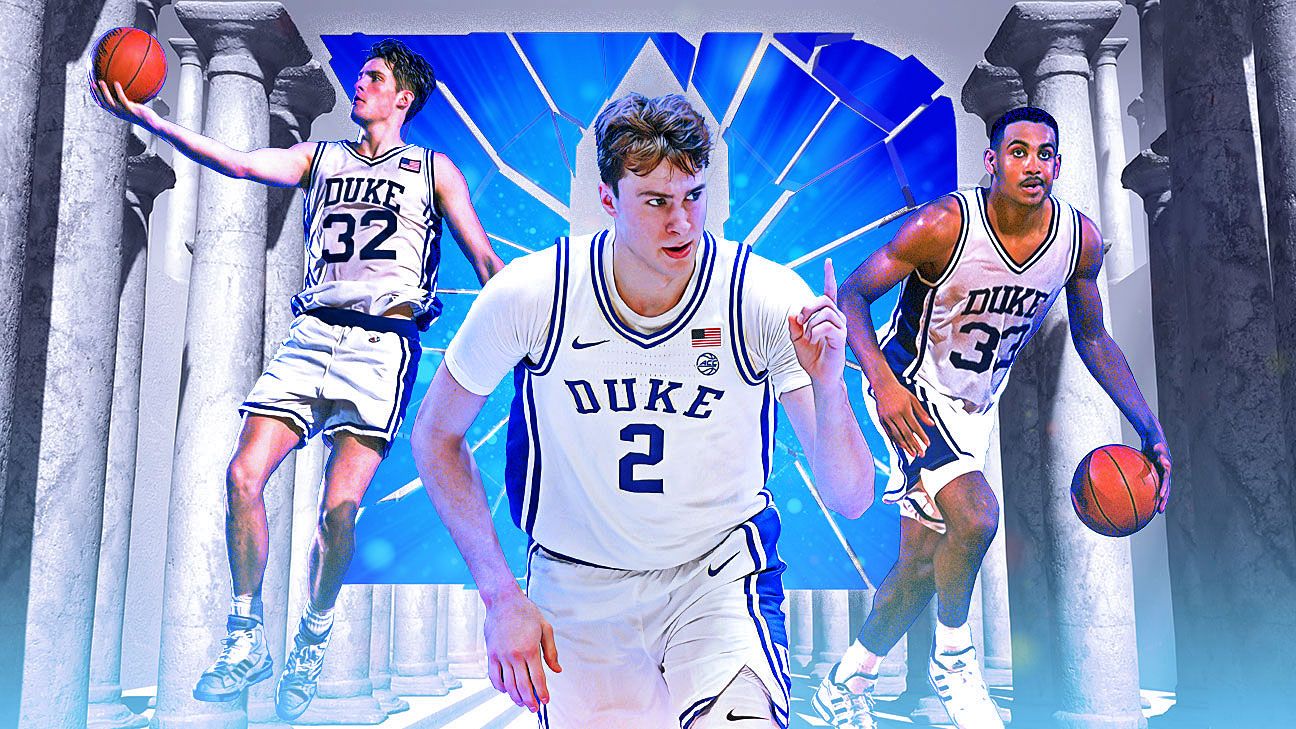
Brianna WilliamsSep 19, 2025, 09:10 AM ET
"OBJ. I'M HIM."
Odell Beckham Jr. was among the earliest prominent athletes to declare the words in his Sept. 2019 "Sunday Night Football" introduction -- and since then, the phrase has become one of the most recognizable in sports.
Now, the saying has leapt from daily sports discourse to the big screen.
"HIM," a sports-horror thriller directed by Justin Tipping and produced by Jordan Peele's Monkeypaw Productions, uses football as a vehicle to explore themes of power, obsession and mentorship gone wrong.
Marlon Wayans stars as the fictional, legendary quarterback Isaiah White and former Florida State Seminole walk-on wideout Tyriq Withers brings authentic football experience to the role of his protégé, Cameron Cade. The movie pushes beyond jump scares to ask a deeper question: What happens when the pursuit of greatness turns terrifying?
That correlation -- between greatness and sacrifice -- drew Tipping to the story. As an athlete turned filmmaker, he saw a chance to merge two worlds that rarely intersect on screen, but always overlap in real life. The result is a genre-blending film that's as psychological as it is physical.
"My first word was ball. I was an athlete my entire life," Tipping told ESPN. "But I also studied film theory. So when this idea came about, it was terrifying and exciting -- pulling from the language of sports movies and the language of horror felt like a chance to let them have a conversation and create a new language."
Tipping made his directorial debut with the 2016 feature "Kicks." Like "HIM," the film weaves music and occasionally humor into its storytelling as its 15-year-old protagonist embarks on a quest to retrieve a pair of stolen sneakers. The journey ultimately raises a similar question to the one echoed in Cade's story: At what cost is the end worth the means?
Before launching his career, Tipping studied film and media studies at UC Santa Barbara and briefly suited up for the men's soccer team.
Balancing the roles of film student and collegiate athlete shaped his perspective on performance and realism. For Tipping, casting a quarterback wasn't just about appearance -- though Withers' 6-foot-5 stature certainly didn't hurt. It meant finding someone who could move, think and react like a true athlete -- someone who could carry the physicality of the role without it looking staged.
"You can't fake [athletic authenticity.] Even the mannerisms -- how you swig from a water bottle -- those things you only get if you're of the world. [Withers] was bringing it every day," Tipping said.
That authenticity, he says, was non-negotiable. Tipping recalls the long hours on set, the repeated takes and the demand for precision in every sequence. He wanted every football scene to feel grounded in reality so that even the smallest details would ring true for fans who know the game.
"I didn't want to make that one sports movie where everyone says, 'Oh, they just cut around it.' [Tyriq] had to be there first, leave last and every day was physically demanding. I don't think this performance is pulled off unless it's someone who was a serious athlete."
LIKE TIPPING, WITHERS has roots in soccer, playing competitively from the age of four until he was 18. But the demands of playing at a high level began to wear on him.
"As I got into my junior year of high school, the burnout began and I ended up getting cut from the soccer team," Withers told ESPN. "Out of spite for my coach, I decided to play high school football."
Listed at 6-foot-4 and 185 pounds at the time, Withers joined the Paxon School for Advanced Studies Golden Eagles (FL) football team as a wide receiver during his senior year. That lone season was enough to earn him an offer from Davidson College in North Carolina. But after attending the Wildcats' summer football camp, Withers realized the eight-and-a-half-hour drive from his hometown of Jacksonville felt too far from home.
Enter the Florida State Seminoles.
Withers credits the then-president of Florida State's Black Student Union for inviting him to their "Summer Week" program before the 2016 fall semester. He made the decision that week to transfer to Florida State. Before Withers could notify the coaches at Davidson and make the move official, he faced one last hurdle: the cost of admission.
Fortunately, during "Summer Week," Withers was introduced to just the man to help him navigate the financial and logistical steps to get there, Tadarrayl Starke -- then-director and department chair of FSU's Center for Academic Retention and Enhancement (CARE). Starke, who is now UConn's Vice Provost for Undergraduate Student Success, vividly remembers his early interactions with Withers.
"There was a quietness and a humbleness to him," Starke told ESPN. "No attitude -- just honorable, mannerful. He wanted to be at Florida State, so my question was, 'If that's truly what you want, how can we help you get here?'"
CARE's mission is to encourage enrollment and persistence in higher education for first-generation, low-income, minority and other students traditionally underrepresented on college campuses. As part of that mission, the program provides scholarships to first-generation African American students -- support that directly applied to Withers' situation.
With Dr. Starke's guidance, Withers secured a full undergraduate scholarship. That crucial step allowed him to work toward his next goal: walking on to the Seminoles' football team.
"THE WALK-ON EXPERIENCE is a humbling one," Withers recalled. "[I went] from being on one of the worst high school teams in the state to playing with NFL-caliber players."
It was a crash course in discipline and the ultimate test of resolve as he worked to close the gap between himself and his teammates.
"I was the weakest on the team in terms of bench press. But seeing a goal and wanting to accomplish that goal and putting in the work to get to the end and make the team was like the first challenge," Withers said. "And then getting in with the team was the next challenge. That relationship that I built with myself in that process translates to everything in life, you know? It gave me the confidence and determination to get things done."
Withers spent the 2016 and 2017 seasons with the Noles -- the former even came with a reward few players ever receive.
"I'm super proud of the Orange Bowl ring. I earned that one," Withers said.
With his pride over that moment still clear in his voice, he also credited then-head coach Jimbo Fisher for setting a high standard.
"[Fisher] was really welcoming to the walk-on team, but he really had a passion for making the walk-ons earn their starting spot. So I think that's partly why I decided to walk away from the team."
Rather than criticism, Withers framed it as a moment of self-awareness to recognize the commitment it would take to compete for playing time and chose a different path forward.
That decision opened the door for him to focus more on school and, eventually, acting. He graduated from Florida State in 2022, the same year he landed his first major appearance in the TV series "Atlanta," after making his on-screen debut the year before.
Even after stepping away from football, the lessons Withers learned and the relationships he built stayed with him. His time at Florida State put him in the locker room with several future NFL draftees like Derwin James Jr., Brian Burns, Auden Tate and Cam Akers.
But it was the team captain who made the biggest impression -- one that later shaped his approach to playing the lead character in "HIM."
"The person who inspired Cameron Cade the most was actually not a quarterback, but [running back] Dalvin Cook," Withers said. "His quiet boldness... somebody so talented yet so humble, walking with a certain level of integrity -- that's what I wanted to steal for my character."
Cook, who finished his collegiate career as the Seminoles' all-time leading rusher, declared for the 2017 NFL draft just hours after their Orange Bowl win. Drafted 41st overall by the Minnesota Vikings, Cook became one of the NFL's most consistent playmakers, finishing top 10 in rushing yards for four straight seasons (2020-23) and landing on the player-voted Top 100 Players list each time.
When told that Withers had named him as an inspiration for the role, Cook was quick to return the compliment.
"It means a lot. Any honors or anybody talk highly of me like that, it's always an honor," Cook told ESPN. "... I just wanted to connect and build a brotherhood. That's probably why me and 'Riq got so tight."
Cook said Withers' walk-on status helped form their bond, recalling how naturally he fit into the locker room culture despite taking a different route than scholarship players.
"When you're not on scholarship and you walk on, you kind of have a different path. So I just tried to connect [with him]... it was fun."
For Cook, watching Withers thrive off the field feels like a natural extension of the character he displayed at Florida State. He said the same traits that made him a respected teammate continue to push Withers forward today.
"For him to still have those morals and values we tried to create as a culture in that locker room -- that just tells you the person he is. I just want him to keep going. The sky's the limit."
DESPITE ALL OF Withers' athletic background and experience, one challenge still loomed large ahead of filming: He was not an actual quarterback.
"When I first booked this role, I thought the football aspect of the film would be a lot easier than being on a collegiate football team," Withers said. "But I came to find out real early that it was just as difficult."
Playing a quarterback -- especially one projected to go first overall -- meant more than looking the part. It required convincing footwork, timing and throwing mechanics that could withstand the gaze of a camera's close-up.
"There was a whole different transition -- learning how to throw a football at a level that you can believe 'He's going first in the NFL draft.'"
That's where Jordan Palmer came in.
A seven-year NFL veteran turned-quarterback consultant, Palmer built his post-NFL reputation by training some of the league's top passers through his QB Summit program. Palmer has trained the likes of Patrick Mahomes, Josh Allen, Sam Darnold, Joe Burrow and many more. He also happens to be the younger brother of 2002 Heisman Trophy winner and 2003 NFL draft No. 1 pick Carson Palmer -- giving him a front-row seat to the demands of the position since childhood.
"Going from wide receiver to quarterback is like saying, 'You're great at basketball -- you should try golf.' Throwing is different," Palmer told ESPN.
He took Withers on as a client while he was preparing prospects for the 2024 NFL draft, including current Dallas Cowboys backup Joe Milton III.
"The studio contacted me, and instead of me going to them, I had Tyriq move down [to Orange County] and embed with my draft guys," Palmer said. "He went to dinner with them, sat in meetings, listened to the questions -- fully immersed."
For two and a half months, Withers trained with Palmer three days a week, transforming from an actor and former wide receiver into a convincing, camera-ready signal-caller.
"He told me [on] Day 1, 'I don't want a stunt double,'" Palmer said. "He wanted to rip it for real."
Withers' clear commitment, curiosity and work ethic from the start gave Palmer confidence that the process would pay off.
"He approached it like a good quarterback -- always asking why. That tells me buy-in and confidence."
Palmer set three clear benchmarks for Withers and treated him the same way he would an NFL hopeful.
"With Tyriq, I had three goals: throw like a quarterback, move like a quarterback and act like a quarterback."
Ironically, throwing was the last goal they addressed.
"It starts with the ground and how you use the ground to create rotation throughout your body. And so I would say the first week or two, we didn't touch a football," Palmer said.
Next up was acting like a quarterback, which included going through the script to make the language more realistic. It also entailed challenging Withers to develop the intangible qualities quarterbacks possess.
"Every day I challenged him: When you step on the field, nobody can mess with you. It's not cockiness -- it's an aura great quarterbacks carry. ... You can build confidence, you can manufacture it. It's not hereditary, it's not God-given. "
Those challenges paid off. Each day, Withers absorbed the work and training alongside Palmer and NFL quarterbacks brought back memories of Florida State -- as if the two-a-day workouts in Tallahassee were still echoing through every rep.
"He showed up not a thrower -- and he left a thrower. That was his buy-in," Palmer said.
WHILE WITHERS DREW inspiration from his former Florida State teammate to shape Cade's quiet confidence, Palmer used a different player to build the character's on-field presence.
"[Chicago Bears quarterback Caleb Williams] was actually the muse I used for Tyriq," Palmer said. "Caleb was the No. 1 pick that year."
Palmer explained that Williams' blend of athleticism, poise and natural charisma made him the perfect model for what Cade needed to look like on screen. That choice aligned closely with Tipping's creative vision for the character.
"For Cameron's character, I looked at Patrick Mahomes and Caleb Williams -- how the media framed them," Tipping said.
Tipping underscored Mahomes and Williams have faced added scrutiny with the expectation that often comes with being a Black quarterback in today's NFL. That dynamic became a central theme of Cade's character arc.
"As a Black quarterback, I had to be great in order to be good," Wayans' character, Isaiah White, says to Cade in the film.
That line gives voice to what many Black quarterbacks have said publicly -- that the margin for error is smaller, the pressure is heavier and the perception is fragile. By grounding Cade's story in that reality, the film aimed to make him feel like more than just a sports movie archetype.
Read more: Welcome to the era of the Black quarterback -- Andscape
The inspiration for White wasn't limited to the quarterback position -- or even football. Tipping said he also looked to some of the biggest names in sports whose relentless pursuit of greatness shaped how he wanted White to think and carry himself.
"For Marlon's character, it was Tom Brady and Kobe Bryant, even Tiger Woods -- athletes whose psychology and drive to be the greatest transcended the game."
The result is a character whose hunger to be the best sometimes blurs the line between mentorship and manipulation. Brady's obsessive preparation, Bryant's "Mamba Mentality" and Tiger's uncompromising focus helped shape White into a character whose advice hits hard, but isn't always clean or comfortable. It gives Cade a mentor who challenges him to rise higher, but at the risk of crossing lines and losing pieces of himself along the way.
For Tipping, "HIM" was never just a sports movie -- it was a way to ask bigger (and sometimes, messier) questions about ambition.
"It was very difficult to calibrate something that serviced both horror fans and sports fans ... but the unifying factor was the universal feeling of striving for greatness -- what sacrifices do you make, what do you miss, and is it all worth it?"
That's why Cade's arc isn't simply about being the draft's top quarterback or following in his idol's footsteps. It's about Cade wrestling with who he wants to be after the final whistle blows and the cheering stops -- a man defined by wins, or by the choices he made to get there.
"I hope [the film] starts conversations about how we want to define greatness, how we want to define success, and how we want to spend our time," Tipping said.
Dr. Starke often uses Withers' story as an example for students, telling them that the path to success doesn't have to be straight and that passion and perseverance can lead to unexpected places.
Withers, too, sees the parallels between Cade's story and his own. The discipline, grit and work ethic he developed as a walk-on carried directly into his acting career, but he says acting has allowed him to go even deeper. It's given him a way to explore humanity -- to tap into the emotions that make stories like Cade's resonate.
There's one takeaway from the movie that Withers hopes athletes hear loudest: "Never sacrifice your own moral values to reach that next level."


